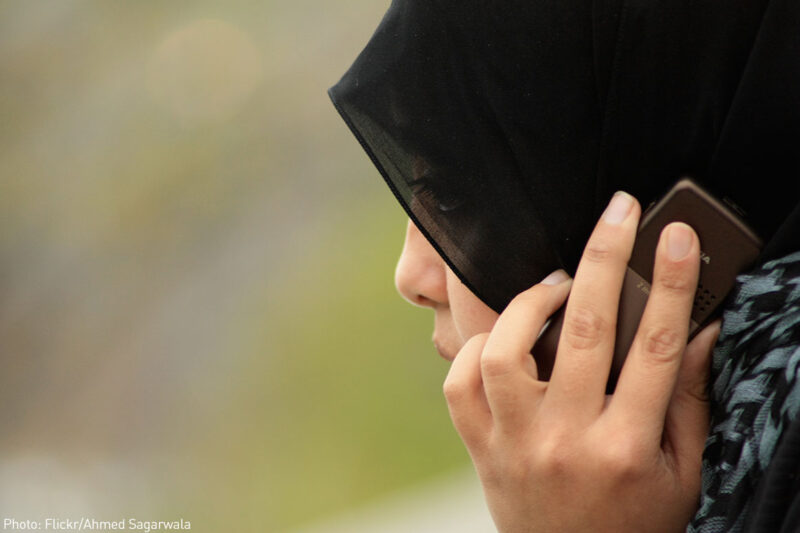
Should a Muslim woman who enrolls as a cadet at the Citadel, a public military college in South Carolina, be permitted to wear hijab with her uniform?
One student cadet at the Citadel doesn’t think so. As The Washington Post recently reported, when Cadet Nick Pinelli found out that an incoming Muslim student had requested a religious accommodation to wear hijab, he took to his Facebook page, publicly proclaiming it “shameful that people expect to be accommodated by groups that are opposite to themselves” and calling on people to “Make America Great Again.”
Pinelli’s rant may have garnered a lot of attention from the media, but hopefully it will hold little sway over Citadel officials as they consider whether to grant the Muslim cadet’s request. As the ACLU explained in a letter sent today, allowing a Muslim cadet to wear hijab is not only consistent with military values and current practices, but it is also vital to respecting the religious-freedom principles at the heart of the First Amendment and South Carolina law.
Over the years, military officials often have dragged their feet on diversifying our armed forces or resisted such efforts outright, arguing that integrating people of color, women, and LGBT people would undermine unit cohesion and weaken military readiness. Officials’ dire predictions have been proven wrong.
Public military academies like the Citadel and the Virginia Military Institute — which operate based on the same principles as our armed forces, and, for many students, are pipelines to military service — have likewise resisted diversifying. Even now — more than two decades after a federal court ordered the Citadel, in an ACLU lawsuit, to admit women — men still comprise 90 percent of the undergraduate class. The ACLU recently had to sue other military academies to obtain information about their gross gender disparities in enrollment.
We get it — change is hard, especially when it involves admitting that certain public institutions are unfairly and unnecessarily exclusionary. But no matter how hard these changes are for some to accept, they are inevitable. The fact is that our Constitution requires our public institutions to be open to all — regardless of race, ethnicity, religion, gender, gender identity, and sexual orientation. Even the Army now recognizes that “[d]iversity is a source of strength.” According to its own materials, an inclusive military enhances our “ability to operate globally with a culturally astute Force, bringing to the fight specific cultural, ethnic, language, and other backgrounds of our personnel.”
When it comes to religious diversity, in particular, the victories have been hard-fought in Congress and the courts. But over the years, the military has, in fact, granted a number of religious exemptions from its uniform and grooming standards to accommodate Muslim, Jewish, Sikh, and other soldiers. Sometimes the Army has faltered in its commitment to religious diversity — for example, when it initially denied a religious accommodation to a Sikh ROTC student who wore a turban, beard, and unshorn hair. When that happens, the ACLU or others have stepped in to sue, and the courts have been increasingly clear in response: There is no evidence that the grooming and uniform accommodations granted to soldiers or cadets have impeded the military’s ability to achieve its overall mission or caused any other danger or harm.
The Citadel should follow the lead of our military and courts by recognizing the value of religious diversity among the student body and providing religious accommodations to cadets who need them.
For many Muslim women, wearing hijab is central to their faith. The same is true for many Sikh students who wear turbans, or Jewish cadets who wears yarmulkes. A uniform policy that does not allow exceptions for these religious practices is tantamount to a ban on these students. And effectively banning people of minority faiths — in violation of our most cherished principles of religious freedom — from public institutions like the Citadel is hardly a recipe for making America great.





